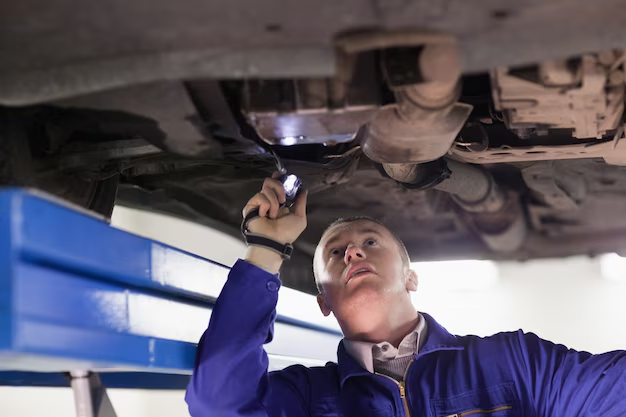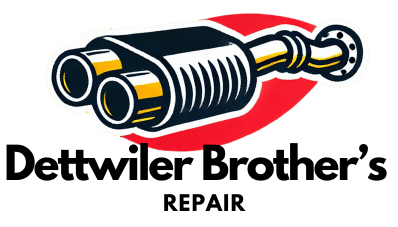
Manual vs. Automatic Transmission Repairs: Key Differences Explained
When it comes to car care, few topics confuse drivers more than the inner workings of their transmission. And that’s understandable — transmissions are among the most complex components in your vehicle. But whether your car has a manual transmission or an automatic transmission, one thing’s for sure: when it’s not working right, you’ll feel it.
Understanding the key differences between transmission repairs for manual and automatic systems can help you make better decisions, avoid unnecessary expenses, and recognize issues early before they lead to bigger problems. At Dettwiler Brother’s Repair in Shippensburg, PA, we’re here to break it all down in a way that’s clear, simple, and genuinely helpful.
Let’s take a closer look under the hood.
What Does a Transmission Do, Anyway?
Before diving into repairs, it helps to understand what your transmission does. In short, the transmission takes the power generated by your engine and transfers it to your wheels, allowing you to move forward, backward, and adjust your speed. Think of it as the middleman between your engine and your tires.
Whether your car has a manual or automatic transmission, its job is essentially the same — but the way it gets the job done is very different.
Manual Transmission: Hands-On Performance
Manual transmissions are often preferred by driving purists and enthusiasts. They give the driver full control over when to shift gears using a clutch pedal and gear stick. It’s a more interactive experience, which some folks love.
From a repair standpoint, manual transmissions are mechanically simpler than automatics. They have fewer parts and don’t rely on complex hydraulic systems or computer controls. That’s a plus when it comes to repairs and maintenance.
Common manual transmission repairs include:
- Clutch replacement: Over time, the clutch disc wears down and needs to be replaced. It’s one of the most frequent manual transmission repairs.
- Throw-out bearing and pressure plate issues: These are components of the clutch system that can fail and require service.
- Gear synchronizer problems: If you hear grinding when shifting, your synchronizers may be wearing out.
- Leaking transmission fluid: Even manual gearboxes need fluid to lubricate moving parts. Leaks can lead to increased wear and eventual damage.
Repair Costs and Complexity:
Manual transmission repairs tend to be more affordable. Clutch replacements are the most expensive of the bunch, but overall, the simpler design keeps labor costs down.
Automatic Transmission: Convenient and Complex
Automatic transmissions do the thinking and shifting for you. Sensors, hydraulic systems, and onboard computers work together to choose the right gear for any driving condition. This ease of use is why automatics are the most common choice for drivers today.
However, all that convenience comes with added complexity.
Common automatic transmission repairs include:
- Transmission fluid and filter change: Fluid is critical in automatics for shifting and cooling. Dirty or low fluid can cause slipping, overheating, and rough shifting.
- Solenoid issues: Solenoids control fluid flow in the transmission. A faulty solenoid can prevent your car from shifting properly.
- Torque converter failure: This component transfers power from the engine to the transmission. When it fails, you’ll likely experience sluggish acceleration and slipping.
- Valve body problems: The valve body directs the flow of transmission fluid. It’s one of the most intricate parts of an automatic transmission and often a culprit behind shifting issues.
- Complete rebuild or replacement: Unfortunately, when automatic transmissions go bad, the repairs can be extensive — and expensive.
Repair Costs and Complexity:
Because of the precision and technology involved, automatic transmission repairs are usually more costly than manual ones. Diagnosing the issue often requires specialized equipment, and replacement parts (or the entire unit) can be pricey.

Key Differences at a Glance
Feature | Manual Transmission | Automatic Transmission |
Driver Input | Full driver control (clutch + gear stick) | Fully automatic gear shifts |
Complexity | Simpler mechanics | Highly complex systems |
Common Repairs | Clutch, bearings, gear synchros | Fluid changes, solenoids, valve body, torque converter |
Cost of Repairs | Generally lower | Typically higher |
Maintenance Frequency | Lower overall | Higher, due to fluid requirements |
Longevity | Can last long with clutch replacements | Depends on fluid upkeep and usage |
How to Tell if Your Transmission Needs Repair
Regardless of the type, your transmission will usually give you some warning signs before it fails completely. Here’s what to watch for:
- Slipping gears: If the car unexpectedly changes gears or can’t hold a gear, something’s wrong.
- Unusual noises: Grinding, whining, or clunking are all red flags.
- Leaking fluid: Transmission fluid is typically red or pink. If you see a puddle under your car, it’s time to call a mechanic.
- Delayed or harsh shifting: Whether it’s a hesitation before shifting or a jolt when it does, your transmission could be struggling.
- Burning smell: Overheated transmission fluid can create a burnt odor — not a good sign.
The sooner you catch these symptoms, the better. In many cases, early detection can mean the difference between a simple fluid flush and a full-blown rebuild.
Maintenance Tips to Keep Your Transmission Healthy
Keeping your transmission in good shape doesn’t require magic — just a little bit of attention and regular care.
For manual transmissions:
- Don’t ride the clutch — that’s a fast way to wear it out.
- Shift smoothly and avoid aggressive downshifting.
- Keep up with recommended gear oil changes.
For automatic transmissions:
- Change the transmission fluid and filter at the recommended intervals.
- Avoid excessive towing or heavy loads unless your car is built for it.
- Don’t ignore even minor signs of trouble — automatics can go downhill quickly if neglected.
Regular inspections and fluid checks by a trusted mechanic can help prevent most major transmission problems.
Choosing the Right Repair Shop
Transmission issues can feel intimidating, but with the right team behind you, there’s nothing to worry about. At Dettwiler Brother’s Repair in Shippensburg, PA, we’ve helped countless local drivers with both manual and automatic transmission repairs — and we do it with honesty, skill, and a genuine commitment to customer care.
Our certified technicians use the latest diagnostic tools to pinpoint problems fast, saving you time and money. We believe in transparent pricing, clear communication, and repairs that truly last.
Whether your clutch is acting up, or your automatic is slipping, we’re here to help. We treat every car like it’s our own and every customer like a neighbor — because here in Shippensburg, that’s exactly what you are.
If your transmission isn’t shifting quite right, don’t wait for it to get worse. Bring your vehicle to Dettwiler Brother’s Repair in Shippensburg, PA, and let our experienced team take a look. We’ll explain what’s going on in plain English and get you back on the road with confidence. Call us today or stop by the shop — your car will thank you.
